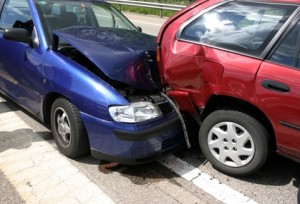Find the lowest Oregon auto insurance prices directly from our website. We take the time to find the best offers from the most respected companies in the Beaver State, so you can easily compare premiums from multiple companies for both full coverage and basic liability. Your personalized quote will include all available money-saving discounts, including several new reductions for 2022. Affordable rates are available on newer and older vehicles, with many budget collision and comprehensive deductibles.
Once you enter your zip code, instantly, you will be able to review the best available offers for your vehicles. This is regardless if you have never been previously covered, your policy has recently lapsed, or you are a preferred driver and have been with the same company for more than 20 years. By customizing policy coverage, you only pay for the items you are likely to use, and leave off items that may be unneeded. For example, if you are a AAA member, or have emergency road service benefits through a credit card, you don't need duplicate coverage on your vehicle policy.
Oregon drivers are among the best in the nation, which could explain why prices are lower than most other states. Maybe it's the unpredictable weather that keeps drivers more alert, or perhaps the 50 hours of supervised driving experience that is required for all persons applying for a valid license. Portland, Eugene, Salem, Bend, Beaverton, Hillsboro, and most other cities feature surprisingly low premiums after all available discounts are applied. Purchasing a vehicle is also often less expensive than other states, since there is no state sales tax.
Lowest Allowed Coverage
When we shop for the best offers, it's important that you are meeting the minimum required liability limits as required by the Bureau of Motor Vehicles. Each vehicle driven on a public highway or road must be covered by car insurance. The requirements are $25,000 bodily injury per person, $50,000 per accident and $20,000 for damage to other person's property.
If convicted of driving without coverage, filing an SR-22 Bond (proof of future responsibility) may be required for three years. Otherwise, your license may be suspended. Additional reasons for an SR-22 filing include owning a vehicle that was not covered at the time of an accident, attempting to reinstate driving privileges, and applying for a probationary or hardship permit. Out-of-state residents must also file if required by Oregon.
"Personal Injury Protection" (PIP) provides financial help regardless of fault. Necessary and reasonable vision, dental, and health expenses for 24 months after the accident must be included. Uninsured/underinsured motorists protection is required in case another person does not have any coverage or simply does not have enough coverage. Reasonable and usual medical, dental and several other types of expenses are covered up to 12 months after the accident. Loss of earnings is reimbursable if you can not return to your place of employment. 70% of lost wages up to $3,000 per month for one year are recoverable. $5,000 of funeral expenses can also be claimed. Only no-fault states require PIP benefits.
The required PIP limit is $15,000, and the uninsured motorist limit is equal to the standard bodily injury per person/occurrence requirement. Whenever you register your vehicles (new purchase and renewal), you are required to show proof that you are complying with the minimum standards. If the registration is no longer in your name, you are no longer legally required to provide coverage. NOTE: The following vehicles are exempt from financial responsibility: farm tractors, farm trailers, special interest vehicles used in parades, celebrations, and exhibitions, snowmobiles, all-terrain vehicles, motor scooter, and other vehicles not operated on highways.
Financial responsibility requirements do not apply to the following:
Farm tractor
Motor-assisted scooter
Antique vehicle that is properly registered
Farm trailer
Special interest vehicles that are principally used in parades, exhibitions, and club activities
Personal electric assistive mobility device
Snowmobile
Optional Higher Liability Limits
Although you are 100% compliant with the $25,000/$50,000/$20,000 limits, they only represent the bare minimum coverage do drive your vehicle on the road. Any serious accident with injuries could result in litigation asking for a much larger dollar amount in damages. Therefore, we highly recommend limits of $50,000/$100,000/$50,000 (or higher). Often, amounts of $100,000 per person and $300,000 per accident are required if you have an excess personal umbrella rider, or you are leasing a vehicle. Gap (guaranteed auto protection) riders pay for the difference in the market value of your vehicle, and what is owed.
Although increasing your bodily injury and property damage coverage will raise your premium, you can offset the difference with adjusting your collision (and comprehensive) deductibles. For example, a combination of increasing bodily injury limits from $25,000/$50,000 to $50,000/$100,000, and increasing a collision deductible from $250 to $500, will likely result in little or no rate increase, and possibly a slight decrease. $1,000 collision and comprehensive deductibles are also offered.
Whenever you register, you will be asked to verify that you have coverage that meets the state minimum requirements. There are, however, many compliance exemptions. Some of these are listed above. A complete list can be found in Oregon Vehicle Code (ovc) 806.020. Self-insurers can qualify be meeting specific requirements. The Department of Transportation issues a certificate to persons or companies that meet these requirements.
Who Are The Best Car Insurance Companies In Oregon?
The "best" carriers for one person might not be a good choice for someone else, since prices are not identical in each part of the state. Also, sometimes, companies specialize in specific risks, such as retired couples, single persons in their 50s, or families with youthful drivers. If you have more than one moving violation in the last three years, we consider the carriers that specifically forgive the first ticket, so your price remains low. If you have more than three moving violations and/or at-fault accidents, a specialty non-standard company may have to be utilized.
Some of the carriers you are likely to see, are Esurance, State Farm, Geico, AARP, Nationwide, Liberty Mutual, Farmers, Amica, and Progressive. However, depending on various factors, you will likely notice additional companies. And as each insurer adjusts rates in your area, we will also adjust our rankings. Mercury, American Family, and AAA are also very attractive options in certain areas, and major companies, such as MetLife and Allstate are always considered.
For example, prices in Eugene may substantially drop, while the Gresham area may experience price increases from many companies. These are the trends we follow and make sure you see all of the current "best buys." It also helps to buy the least expensive vehicles to insure. No matter where you buy these vehicles, you'll be happy with the cost. NOTE: Several cities in the state that often feature the lowest rates include Albany, Ashland, Coos Bay, Corvalis, Dallas, Medford, Newport, Roseburg, and Scappoose (see below).
Which Oregon Cities Have The Lowest Rates?
Prices can quickly change and carrier rates vary in most counties. Additionally, underwriting factors and guidelines will impact the cost of coverage differently for drivers. Shown below are the 30 cities with the most competitive 2021 rates:
Albany
Astoria
Baker City
Bend
Brogan
Central Point
Corvallis
Cottage Grove
Creswell
Enterprise
Eugene
Grants Pass
Hermiston
Independence
Ironside
Klamath Falls
La Grande
Lebanon
Medford
Monmouth
Newport
Nyssa
Ontario
Prineville
Richland
Roseburg
Springfield
Sweet Home
Union
Vale
What If I Drive Without Insurance?
Naturally, that is not a wise thing to do, unless you enjoy paying a fine, having your vehicle towed, along with your license suspended. And you would also have to pay daily fees while your vehicle is stored. The fines and charges can accumulate very quickly, and the impact on your auto insurance premiums can last for three years.

Driving uninsured in Oregon are subject to penalties provided by Vehicle Code 806.010 and related legislation. The specific requirements are described under ORS 806.080 and includes three years of required financial responsibility. Proof of coverage can be provided on an electronic device, although consent is not provided to police officers to view other parts of the electronic device. Residence and business address does not have to be revealed when displaying proof of coverage.
If coverage lapses, you may need an SR-22 bond, which proves that you are financially responsible. The alternative is a three-year license suspension, which is not much of a choice. We can help you file the Bond and get back on the road as quickly and as cheaply as possible. Additional information is provided by the Oregon Department of Insurance, who also covers topics such as what to do when you receive a cancellation notice, and when to notify your carrier when you purchase a new vehicle. NOTE: It's important to maintain a "clean" driving record during the time you are required to maintain the Bond. If an additional major violation occurs, the three-year period can reset.
The Bureau of Motor Vehicles randomly verifies compliance of Oregon auto insurance laws each month, so it is equally important to always know where you keep your documents. If you are contacted, you must furnish the name of your current carrier and the policy number. If you fail to respond or provide the wrong information, you risk a suspension of your driving privileges. An ample amount of time is provided to furnish proof of coverage. Documentation can be mailed, faxed, emailed, or submitted to several available locations.
If your policy is close to lapsing, or is due to be paid within a few days, utilize the "free quote" section at the top of the page so we can provide the most affordable options. If the price is acceptable, you can quickly apply, and request immediate approval. By paying the least allowable down-payment, you can temporarily minimize your out-of-pocket costs. Information typically required to obtain same-day coverage includes the VIN, and make/model of the vehicle, driver license numbers, and dates of birth of all household drivers.
Will My Policy Cover Me If I Go Out Of State?
Yes. Regardless if you drive north to Washington, south towards Nevada or California, or east towards Idaho, you will be covered. Also, if you drive west into the Pacific Ocean, you'll still be covered (assuming it was an accident, of course). And if you drive across the country, your policy benefits will stay with you. In no-fault states (Michigan, Pennsylvania, Kentucky, Utah, and others), damage resulting from an accident may be treated differently. It's always important to file a police report, especially if the other driver was at-fault.
However, once you enter Mexico or Canada, the situation becomes a bit murky. It's always best to check with the broker, or directly with the company, since each policy is different. For example, certain carriers allow you to drive within 50-100 miles of the border. However, many other companies do not offer benefits if you cross the Canadian or Mexican border. Driving in Europe or other continents will require specialized coverage.
Other carriers will not extend any aspect of your policy once you leave the Continental US and may limit the number of days you are outside the country. However, Mexico is a much riskier area and you will certainly need to purchase a separate policy that will provide limited benefits. Additional risks are the number of drivers that don't use headlights, increased numbers of intoxicated drivers, cars and trucks with malfunctioning lights and brakes, and large cracks and potholes on less-traveled roads. The best option is to keep your vehicle inside the United States and your car insurance rates in Oregon will stay low.
Use Of Credit In Determining Your Rate
Credit scoring is utilized by most carriers when underwriting an auto or homeowner's insurance application and determining the premium to charge. However, specific limitations protect Oregon consumers. For example, credit scoring is prohibited from being used to increase rates on a policy renewal. Commercial rates and renewals, however, can be impacted. Policies also can not be terminated or non-renewed because of credit report issues.
When underwriting a new application, an insurer can utilize this type of data. However, the carrier must be able to prove that the data and information helps predict future claims and related expenses. Also, the data must be used with other underwriting factors when determining future premiums. The company must also notify applicants that this data may be used. If obtained credit information results in a higher rate, the consumer must be informed of the specific reasons that caused the premium to increase.
Is Pay As You Go Available?
Yes it is. Although not all companies offer this feature, of the more than 100 available carriers in the state, it is gaining in popularity since a tax credit is available to insurers that meet certain mile-based guidelines. The consumer and carrier both benefit since drivers are not charged unless the vehicle is on the road. Better known as "PAYD," other states are also looking at its features.
A data-logging device (DLD) is required to be installed on your cars. Typically, your vehicles must be about 17 years or newer. The entire cost of installation is paid by the insurer. Allstate, Liberty Mutual, National General, Progressive, MetroMile, Travelers, and American Family currently offer these devices. A "base rate" of about 20%-60% of the normal premium is the starting point. We anticipate that the overall cost of the program will gradually reduce over the next 5-10 years.
The concept is very simple. If you rarely drive, you save a lot of money. If you take a lot of long trips, your rates will substantially increase. One carrier estimates it will charge 4 cents per mile driven. Another company will also include safety components, such as how fast you drive, brake and turn. Since most of these offers have not yet been implemented, we will keep you updated of any significant progress that is made.
OReGO
OReGO helps fund transportation expenses and projects for all residents of the state. Instead of paying a fuel tax, consumers are charged for the number of miles they drive. Currently, the cost is 1.5 cents per mile. Thus, if you drive 20 miles, you are charged 30 cents. If you drive 50 miles per day, your approximate monthly cost is only $25. Personal information is kept private and secure, and credits will be provided for fuel tax that is charged while pumping gasoline.
Additional perks and incentives are provided by several companies, including check engine light decoder, find my car, trip log, and awards for good driving. Currently, the maximum number of participating vehicles is capped at 5,000. No more than 1,500 vehicles can be used that get less than 17 mpg. An additional 1,500 vehicles may be used that get between 17mpg and 22 mpg. Creating and setting up an account involves providing your vehicle VIN, your driver's license number, odometer reading, and payment information. The three available vendors are DriveSync, Azuga, and the Oregon Department of Transportation. NOTE: The DOT does work with your GPS, include value added services, or offer credits for out-of-state miles.
Summary
We are committed to finding the cheapest auto insurance prices in Oregon for our customers. Since rates change so frequently, we are constantly shopping so you always receive the lowest quotes. As new companies enter (and leave) the state, we will inform you. Occasionally, legislation is passed or vehicle requirements are updated. Once again, we will always explain these changes and evaluate if they will have any impact on your coverage.
Also, the Northwest is often a "testing ground" for new ideas and innovations in the automotive world. Whether it's driverless cars or alternative fuel-powered vehicles, if it impacts your rates, we'll let you know.
PAST UPDATES:
Measure 88 failed to pass in Tuesday's election. If passed, driver cards would have been issued to persons that could not prove their legal residency, and car insurance rates in Oregon would have increased, to cover an anticipated increase of claims. All but one of the state's counties voted against passage of the law.
Although roads and highways are probably safer with less-experienced drivers off the road, in fairness, many workers that are undocumented, will continue to have trouble finding transportation for job and family needs. It's expected that the measure will be revised, and may be on the ballot again within the next four years.
Portland, for about four months, is allowing Lyft, Uber and other ride-sharing companies to offer their services as long as they follow specific guidelines. Some of these guidelines include special services for disabled passengers, background checks on employees, 24-hour operations, and minimum liability insurance coverage. As part of the agreement, cab drivers may adjust their fares to meet constantly changing market conditions.
The bigger issue is whether this short-term agreement will lead to a long-term peaceful co-existence between the ride-sharing companies and Portland. The cost of each permit is $20,000 (per company), and all drivers must apply and receive a business license. The final City Council vote was 3-2 in favor to approve the 120-day period.
April is "Distracted Driver Awareness Month." Distracted-driving fatalities have steady increased, and mobile devices are largely to blame. Serious injuries are increasing along with car insurance rates in Oregon, as a result of too many drivers not paying proper attention to the road. According to ODOT, every three hours, an in-state driver is injured because of distracted driving.
The State Legislature is considering two proposed bills that would create stiffer penalties when driving while texting or using a cell phone. Either a felony or misdemeanor could be charged, depending upon several factors.



